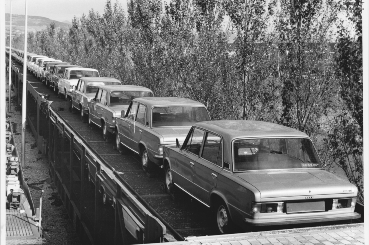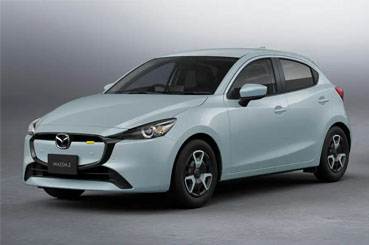A company car is a vehicle provided by an employer for both business and private use of their employee. Historically, company cars are typically bought in bulk and just given to their employee without a choice given. However, the employee chooses most company cars from a list pre-approved by their employer.
If your job involves much driving, chances are you have been offered a company car. The benefits of this could be massive for you in the long run as (usually) your employer will cover insurance, maintenance and other running costs. But as the UK enters into a more eco-friendly era, choices are widening for what car could be best to suit your company’s needs. Hence, we have put together a guide to help navigate the new era for company cars.

Post-COVID company cars:
The restrictions during the Coronavirus outbreak hit businesses hard, with many workers staying at home to stop the spread. Now, life is finally seeing normality; employees are back out and even travelling again. Fleet managers are now looking forward to speeding up their electrification programmes and flexibility when providing their company cars.
So what can fleet managers do for their company drivers? Offer a car that is right for their job’s requirements.
Which company car is right for your fleet?
Now more than ever, company car drivers have more choices opened up to them in terms of drivetrains. New options have come into the mix from originals like diesel and petrol such as hybrids and electric – so which could be right for you?
Diesel Options:
In the early 2000s, diesel was the most common choice for fleets from its “new” CO2-based tax breaks and employers benefitted from efficient new vehicles. However, diesel cars attracted negative attention for it’s potential air quality output, and many manufacturers have now stopped the drivetrain production. It is also worth noting that the demand for diesel is now at an all-time high due to the limitation of Red Diesel for certain vehicles, so the cost of diesel fuel has risen significantly to accommodate.
Contrary to debates, diesel engines are still quieter and offer longer ranges with higher efficiencies which is beneficial for company car drivers. Additionally, thanks to the Euro 6d emissions regulations, diesels are no worse than petrol cars in terms of air quality – so they shouldn’t be written off entirely when considering your fleet.
Petrol Options:
The most popular fuel in the UK, petrol research and development has become extensive to make the gap smaller for efficiency. This has included the adoption of modern fuel injection systems and ‘mild hybrid’ technology – a very light form of electrification that still allows drivers to use petrol with hybrid capacities. This, in return, has opened up the range of cars available, and they avoid the need for the expensive exhaust after-treatment systems that are eroding the business case for diesel engines.
Nevertheless, petrol engines do have their downfalls. These drivetrains can’t match the efficiency of a diesel engine, and – for the first time – company car tax doesn’t differentiate between them now that all new cars have to comply with RDE2 on-road pollution limits.
Hybrid Options:
Full hybrids, also known as ‘self-charging’ hybrids, are usually petrol-powered that use regenerative braking to recharge the batteries. Under the bonnet, they come with one or more electric motors to assist a petrol engine. They’re an easy stepping stone for drivers who aren’t fully ready to make their way over to fully electric cars but also provide diesel-like efficiency without the need to plug in. The electric range is short and delivered in bursts when the powertrain isn’t working very hard.
Plug-in hybrids come with many benefit-in-kind incentives, which helped make fleets early adopters of PHEV. This type of hybrid drivetrain is essentially a ‘full’ hybrid with a larger battery that you can charge from the mains. These typically offer an electric range of between 30 and 40 miles on battery power alone, but with the back-up of simply filling up with petrol or diesel when you need to go further.
These are perfect for company car drivers who travel long distances but want to reduce their impact on the environment through their work. Research also showed that in 2021, 61% of hybrids registered in the UK had a Toyota or Lexus badge.

Electric Options:
2030 is the aim to end the sale of new petrol and diesel cars and vans in a bid to achieve net-zero; electric vehicles are rising both in production and consumption. There’s a growing choice of newcomers that can travel 200-250 miles between half-hour charging stops, and renewed company car tax incentives arrived in 2020 just as WLTP-derived CO2 emissions have pushed most other vehicles up a band or two. So it’s hardly surprising that fleets and businesses accounted for two-thirds of all EVs registered in the UK last year, according to the SMMT.
Home Charging:
In the likely chance your company car is a PHEV or EV, most of the charging of electric and plug-in hybrid cars will happen at home. This means the UK government has had to recognise the importance of providing adequate infrastructures, such as regulations for ChargePoints to be fitted into all new builds and properties. Additionally, the Electric Vehicle Homecharge Scheme covers up to 75% of the cost of the ChargePoint (including installation), capped at £350 per unit. It’s available to drivers who have been assigned an eligible electric or plug-in hybrid company car for six months or more, including rentals and salary sacrifice schemes.
Clean Air Zones – what does this mean for company cars?
Following London’s footsteps, many councils have decided to introduce a Clean Air Zone scheme to their cities to better the quality of air around us. This has resulted from stricter European standards for exhaust emissions to help cut roadside pollution. Still, the sheer traffic volume has slowed progress, and levels differ across the country.
For now, it shouldn’t be a massive concern for company cars and fleet managers as their choice of vehicles are less than three years old. This means they should meet the required Euro standards so they will be exempt from most charging clean air zones.
For more information about Clean Air Zones, visit our blog here.
As one of the UK’s largest franchised dealers, Stoneacre Leasing can offer you a wide selection of affordable car leasing deals available on the market. We also offer competitive business leases, tailored for you and your business.
Want to find out more? Visit our website today or contact us to see what we can do for you!




